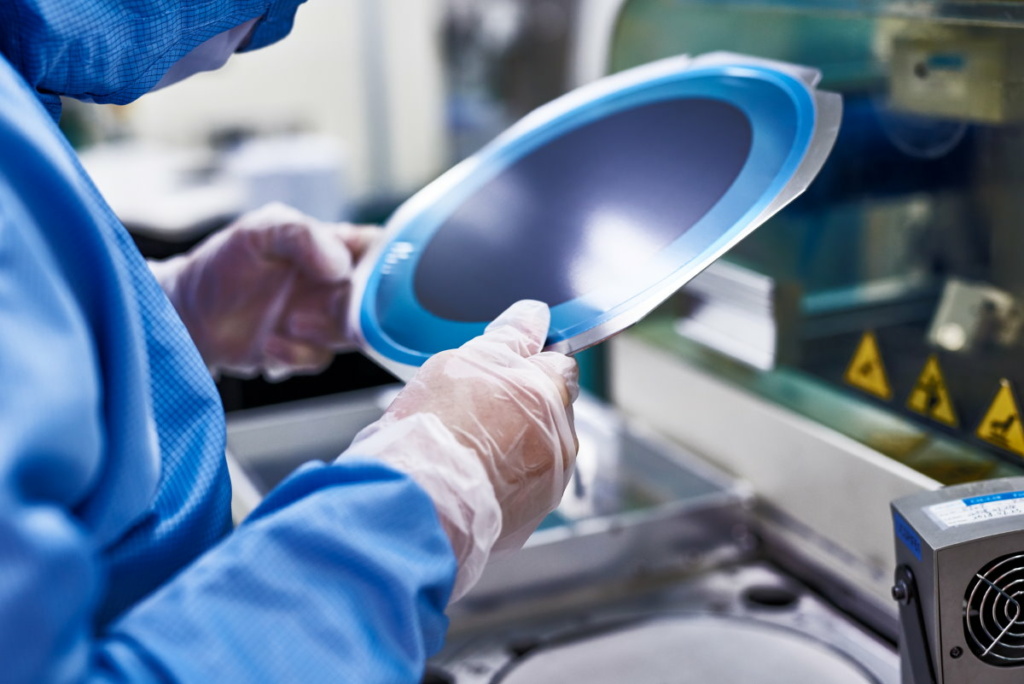
Nexperia: “We’re an asset, not a threat”
When Chinese consumer devices and semiconductor group Wingtech acquired a majority stake in Nexperia four years ago, no one batted an eye. How the geopolitical winds have shifted. These days, the Nijmegen-headquartered manufacturer of discrete, standard logic and MOSFET devices is treated with suspicion because of its Chinese owner. The UK government, citing national security concerns, retroactively blocked the acquisition of a decades-old fab in Wales (a decision that Nexperia is appealing at the British High Court). And Dutch Minister of Economic Affairs Micky Adriaansens alluded that the takeover of Delft-based startup Nowi would have to be reviewed as soon as the legislative framework is adopted by parliament (current status unclear).
More recently, a report surfaced that University of Twente’s Bram Nauta turned down a research collaboration with Nexperia, citing concerns that the results would ultimately be monetized in China instead of here. The university supports that decision, pointing to the current geopolitical situation and Europe’s ambition to become less dependent on China and, more generally, to prop up its own semiconductor industry.
Nexperia feels it’s being wronged. “There’s a lot of framing going on. Often crucial elements are left out in media reports because they don’t support the angle of highlighting tensions between the West and China,” says Petra Beekmans-Van Zijll, Nexperia’s head of global communications. “We’re happy to engage in dialogue with any stakeholder about concerns surrounding Nexperia, but we need to get the facts straight,” agrees Hannes van Raemdonck, the company’s head of advocacy and alliances.
Nexperia maintains that it operates independently, as a Dutch company. How can that be true if the owner is Chinese and partly state-owned?
Van Raemdonck: “Wingtech is not state owned at all. This phrasing suggests that central authorities would have a say in its governance. This is far from the truth. Wingtech is a public company listed on the Shanghai Stock Exchange. When it acquired Nexperia in 2019, about a third of its shares were held by investment funds linked to Chinese regional authorities, which were looking to attract economic activity. These investments are temporary, and these funds have started to reduce their stake. It’s slightly less than twenty percent now. In any case, it’s not a controlling interest. There are no indications that these Chinese regional authorities have a say in Wingtech’s management.”
“Secondly, Nexperia is a Dutch legal entity that has safeguards in place to prevent all external forces gaining influence on our business operations – as any company would. Our CEO Xuezheng Zhang is also the CEO of Wingtech, but decisions are made by the mainly European executive management team. We have no financial obligations to the parent company; we’re free to invest all our profits back into Nexperia. And we do: our R&D expenditure is steadily growing from approximately 7 percent of sales in 2017 up to 15 percent in coming years. All our intellectual property, wherever it has been developed, resides at our Dutch entity.”
“Thirdly, I don’t need to point out that as a former part of Philips and NXP, we have a long history in the Netherlands and Europe. All of our front-end fabs are in Europe. The most prominent link with our parent company is that we have to share our financial results since we’re part of a listed group.”
Didn’t Nexperia announce the construction of a 300mm power semiconductor fab in China? This is bound to stoke fears that Western knowledge is transferred to and monetized in China.
Beekmans: “That’s not a Nexperia fab, but a foundry, with us as one of several customers. It’s currently ramping production.”
Van Raemdonck: “Let’s not pretend the products that Nexperia sells are in any way unique or, by the standards of the semiconductor industry, advanced. China has this technology already. In fact, a lot of our competition is Chinese.”
Even if there’s no link between Nexperia and the Chinese state, the optics of a Chinese owner aren’t ideal in the current geopolitical climate, especially in the semiconductor sector. Unfair or not, this is a reality you have to deal with.
Beekmans: “That’s true. This is why we’ve started to actively reach out to stakeholders to ‘educate’ them about Nexperia’s governance. We offer full transparency. We’d like people to understand that we’re an asset for Europe’s semiconductor ambitions, not a threat. Our company is growing and much of our investments benefit Europe. We haven’t changed, but the perception of us has. Nexperia is recognized by its customers across countries and markets, they see us as a trusted partner. It’s frustrating that in Europe, where we have a long history of production and investments, we need to defend ourselves against forces that prefer sentiment above fact.”
Van Raemdonck: “We’d like more clear guidance. A lot is being said and written about how Western companies and other organizations, such as research institutes, should relate to China. But there’s no official government policy. We’d like to know where we stand, what’s acceptable and what’s not. At the moment, it’s all up in the air.”
Would you consider building a fab in Europe?
Van Raemdonck: “Semiconductor demand is rising and we need to expand our production capabilities. We’d certainly consider Europe to do that, provided we can clear the air.”
Main picture credit: Nexperia





